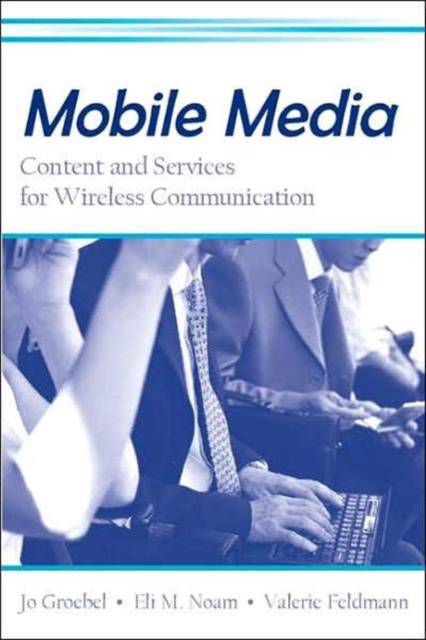
- Retrait gratuit dans votre magasin Club
- 7.000.000 titres dans notre catalogue
- Payer en toute sécurité
- Toujours un magasin près de chez vous
- Retrait gratuit dans votre magasin Club
- 7.000.000 titres dans notre catalogue
- Payer en toute sécurité
- Toujours un magasin près de chez vous
Mobile Media
Content and Services for Wireless Communications
Description
The proliferation of mobile media in recent years is an international phenomenon, with billions of devices sold annually. Mobile communications are now moving beyond individualized voice to mass media content--text, voice, sound, images, and even video. This will create new types of content that allow media companies and users to interact in new ways. There is a strong interest from the media and telecom industries in what manner of applications and content can be distributed in that fashion, and at what cost. To answer these questions, the book provides 18 chapters from internationally renowned authors. They identify likely types of content such as news, entertainment, peer-to-peer, and location-specific information; evaluate the economics, business models, and payment mechanisms necessary to support these media; and cover policy dimensions such as copyright, competitiveness, and access rights for content providers.
This volume takes the reader through the various elements that need to be considered in the development of third generation (3G) content, and explains pitfalls and barriers. The result is a volume of interest to business professionals, academics, and policy makers. The book is international in focus and a glossary of terms is provided. There are few publications available which give an overview of this rapidly changing field.Spécifications
Parties prenantes
- Editeur:
Contenu
- Nombre de pages :
- 278
- Langue:
- Anglais
- Collection :
Caractéristiques
- EAN:
- 9780805846423
- Date de parution :
- 03-11-05
- Format:
- Livre relié
- Format numérique:
- Genaaid
- Dimensions :
- 162 mm x 236 mm
- Poids :
- 603 g






